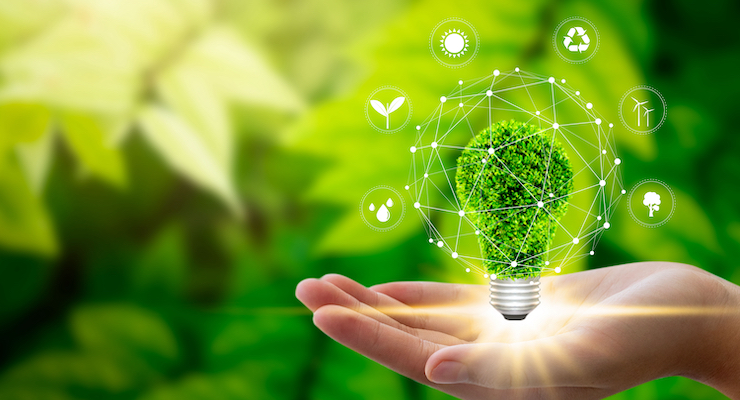Living Off the Land
Sustainability in a Constantly Changing World
Photo courtesy: https://www.nutraceuticalsworld.com
There are many parts of sustainability that contribute to an overall ecofriendly living.
April 19, 2023
At the beginning of 2020, the COVID-19 pandemic forced everyone into their homes, and the world shut down. The world experienced shortages of everyday supplies and stores began to run out of items that used to be available in bulk. People began to look for a more sustainable way to live to make do with the little supplies at hand. Making gardens and using reusable materials were methods that citizens utilized to be more sustainable.
Zeb Whelchel (11), a member of Envirothon, thinks that sustainability is vital to sustaining the Earth.
“I think sustainability is very important to the future of the Earth. It is very beneficial to preserving what we have and not wasting it,” Whelchel said.
Recently, prices for food, gas and housing have increased due to inflation in the United States. There is a rising demand for products because of people saving more money over the past few years. The problem is that producers have not caught up to the demand yet and the growing need for products puts them into backorder.
Grocery prices have experienced nationwide fluctuations in supply due to the recent state of the world. Avocados are cheaper right now because of an influx of backorders from the past few years. According to cnn.com, so many avocados are in circulation that some stores are giving them out for free and this oversupply should last well into 2023.
On the opposite side of the fluctuation spectrum, egg prices have climbed rapidly. This is caused by inflation and supply-chain issues that are still resulting from 2020. In addition, the world is currently living through a horrible bird flu. Today.com claims that it is the deadliest avian flu in history and has killed over 53 million birds. While some people may be able to laugh off this egg shortage, small businesses have had trouble coping with rising egg prices. Some local restaurants have had to take egg items off their menu because they are too expensive to buy.
Caroline Nichols (11) is a member of Envirothon and thinks sustainability is important for future generations.
“Sustainability is important because we need to conserve our resources for our children and future generations but comes with many drawbacks such as cost effectiveness and is seen as impractical by some. It is becoming harder to buy sustainably because of the prices on goods rising,” Nichols said.
To counter these high prices people have started gardens straight from their homes. One benefit of having a home garden is that you get easy access to produce. Once the garden grows, people have access to fresh produce to eat and have to pay a fraction of the cost for it. Another benefit is that it has less impact on the environment. According to SFGATE.com, because of the lack of chemicals, home gardens help make positive impacts on the ecosystem.
While some choose to grow crops, other people choose to raise animals like chickens. While this requires more work than starting a garden, it may be more profitable in the end. Although there are some cons to having chickens, the upsides are just as compelling. Raising chickens at home allow you to have fresh eggs constantly which cuts down on grocery spending. It is also better for the chickens not to be kept in cramped cages their whole life.
Helen Colbath (9) has chickens at home and uses them for their egg production.
“Having chickens has improved gardens and having fresh eggs reduce costs and is healthier for you,” Colbath said.





